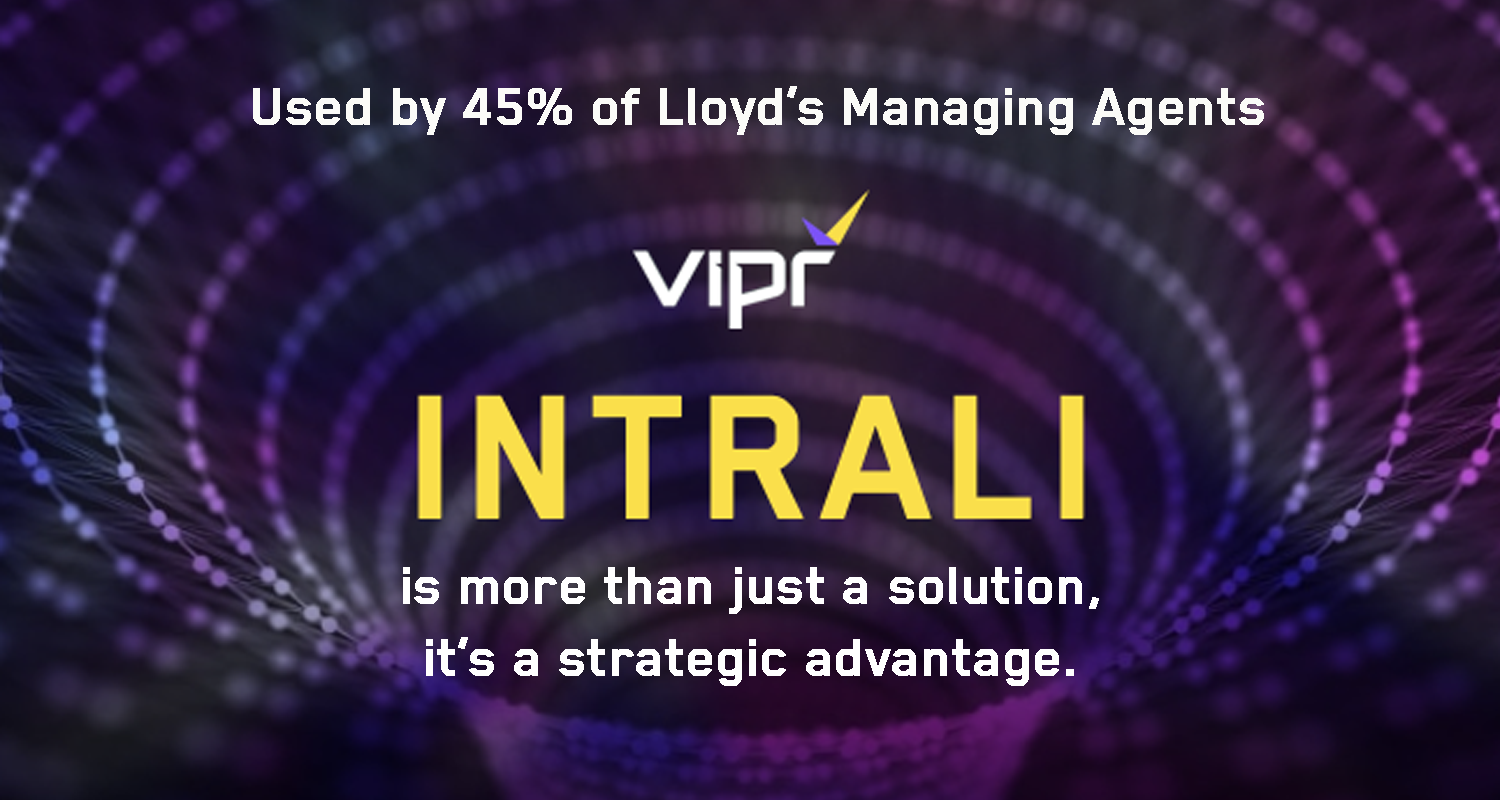NEWSROOM
Thought leadership: The power and importance of data for insurers


Movement of data; ingestion and extraction
Data is one of the most powerful tools today’s insurance companies have at their disposal. It can give them a greater understanding of risk and enable underwriters to get closer to their clients. To that end, in recent years our Delegated Authority customers have been putting a great deal of energy into collecting and using data. And they will continue to do so in even more sophisticated ways as the market continues its evolution.
But simply amassing data is not enough. As Mark Twain once said: “Data is like garbage. You’d better know what you are going to do with it before you collect it.” And once that data is collected, our clients need confidence that it’s usable and able to be moved safely, securely, and efficiently.
At VIPR we are very clear that the data is the customer’s asset. Where we come in is in providing solutions that help them to make better use of that data.
Extraction
Data extraction is the process by which we take data out of a system and pass it on to the customer for them to use how they wish.
For example, we have processed data from bordereaux sitting in data warehouses; we can either extract pieces or subsets of that data for our customers, or maybe provide them with a copy of all that data. They may then integrate that with their own data too.
The data that we extract can give our customers an enterprise view. As I mentioned before, we are very clear that the data is the customers’; we don’t try to sell it back to them, so to speak, instead we provide them with the data they need to get a view of risks and trends – or do with whatever they choose.
Mapping
It’s up to our customers how they control their data, of course. But bordereaux processing does standardise data into fields. Customers can then map that data. We at VIPR don’t alter the data in any way, but we can provide standards ‘out of the box’ if that is something useful for our customers.
For example, we can provide data fields, in accordance with market standards, like naming conventions and so on. Our systems are intended to give our customers flexibility; if they wish to add fields or criteria then we can help them to do so – whether at the implementation stage or after they have been using VIPR solutions for a while.
The cloud
The insurance industry has sometimes been slow to adopt new ideas and is often, by its nature perhaps, somewhat risk averse. But we have seen a great number of our clients recently understanding the great benefits of storing their data in the cloud.
Data security is of the highest standard in the cloud and our customers are now very comfortable with that. Each customer’s data is completely ring-fenced.
From a customer point of view, storing data in the cloud is hugely beneficial. Not only do customers no longer need to invest in and maintain huge data centres and other technology, the cloud enables them to segregate and share data easily, should they wish.
And with customers collecting, storing and using more and more data, the cloud offers scalability much more quickly than traditional systems ever could – there’s no need for someone to physically visit the data centre to audit the memory – with cloud technology this takes just a couple of clicks.
When clients use VIPR Data Cloud they can decide who can see what data. They can decide with whom they share that data and how it is separated out. The customer has full control and flexibility.
Future data use
Our Delegated Authority customers are truly seeing not only the power of the data they collect but the different ways in which they can use that data to better understand risks and trends, and to use those insights to provide better service and coverage to their clients and – ultimately – to be more profitable.
VIPR’s Data Insights product can enable customers to make tweaks to their underwriting that can result in huge improvements to loss ratio, for example.
At VIPR we are keen to support our clients in deriving these insights to help them make real business decisions. This is not about data management – it’s about really understanding the business, spotting trends and anomalies and making decisions – fast – that can be transformative.
An impressive example of using insights from data sets to change and improve a business model is that of the supermarket chain Tesco. It introduced a Clubcard system in the 1990s which gave it valuable data about how customers shopped. Deriving the insights from those trends inspired Tesco to introduce numerous, smaller stores intended to enable customers to shop quickly and efficiently. It really changed the business.
If you think about the ways in which data can enable us to spot risk trends, I believe that for our Delegated Authority customers, the ability to ingest, extract and derive insights from data will be a game changer going forward and at VIPR we can make that happen.




